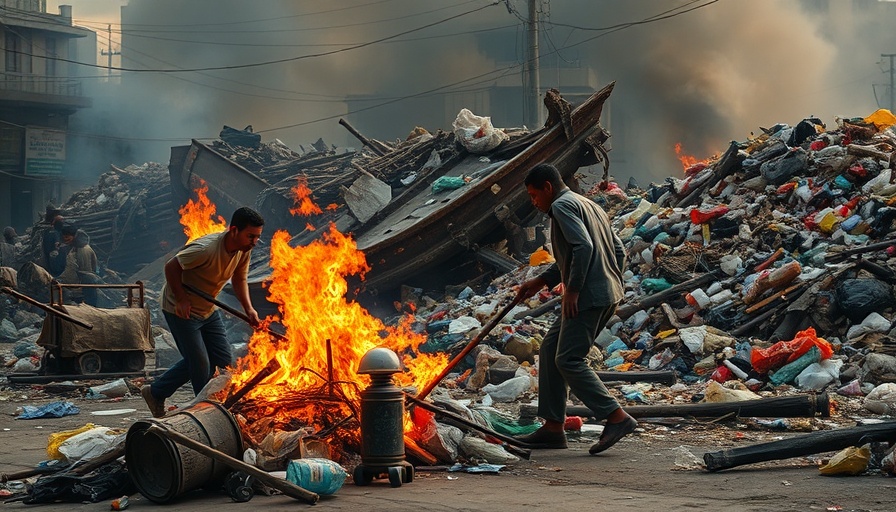
The Hidden Dangers of Plastic Burning in Developing Countries
Plastic waste is more than an eyesore; it’s a rising global health threat. Communities around the world, particularly in developing nations, often resort to burning plastic due to a lack of waste management systems. Burning plastic releases toxic chemicals, posing serious risks to respiratory, reproductive, and neurological health. Experts like Tiwonge Mzumara-Gawa warn that this alarming practice isn’t just a localized issue; it’s a public health crisis that’s escalating.
Why Plastic Waste Is A Global Crisis
As nations shift to cheaper, single-use plastic products, the problem of plastic waste has escalated dramatically. For instance, in countries like Malawi, families resort to burning plastic waste in their backyards as there are minimal government-provided waste disposal systems. This practice releases hazardous substances into the air, creating a toxic environment, especially for children who are most vulnerable to these chemicals.
The Role of Global Treaties: A Call to Action
With United Nations negotiations on a global plastic treaty approaching, there’s hope for serious reforms. Experts argue that these discussions must prioritize tackling the export of plastic waste from developed nations to poorer countries. Countries in the Global North are significantly contributing to the problem through both production and irresponsible disposal of plastic products.
Health Risks Associated with Burning Plastic
The risks associated with open burning of plastic cannot be overstated. Research indicates that burning plastic releases dioxins and furans, which are known carcinogens. Health impacts can manifest as respiratory diseases, cardiovascular issues, and even birth defects. As Gauri Pathak, a researcher at Aarhus University, notes, millions are exposed to these dangers daily, highlighting the urgent need for global action.
Practical Solutions: Towards Sustainable Waste Management
Communities must pivot towards sustainable waste management practices that do not involve burning. Solutions such as promoting the use of eco-friendly products, establishing recycling programs, and encouraging composting initiatives could mitigate the issues linked to plastic waste. Additionally, implementing renewable energy sources could offer pathways for lower dependency on fossil fuels.
Community Engagement: A Collaborative Approach
Local communities play a critical role in addressing plastic pollution. Initiatives that educate families about reducing waste and using reusable products are essential. Involving local schools and organizations in environmental conservation efforts fosters a collective sense of responsibility.
Innovative Alternatives: Redefining Waste Management
Innovation has a crucial role in creating effective waste management solutions. Green technology can serve as a tool to develop sustainable alternatives for plastic usage. Moreover, it not only addresses the environmental impact but also encourages economic opportunities through greener jobs in sustainable communities.
Final Thoughts: Making Informed Choices
As eco-conscious consumers, we can play an active role in combating plastic pollution. Choosing ethically produced and sustainable products contributes to lessening the global plastic footprint. Participating in community clean-up drives and supporting policies aimed at reducing plastic waste are steps everyone can take. Consider your choices and advocate for a cleaner, greener future.
Remember, changing our consumption habits can lead to significant improvements in the fight against plastic waste pollution. Together, we can foster a shift towards a sustainable future, reducing plastic’s detrimental impact on our health and environment.
 Add Row
Add Row  Add
Add 



Write A Comment